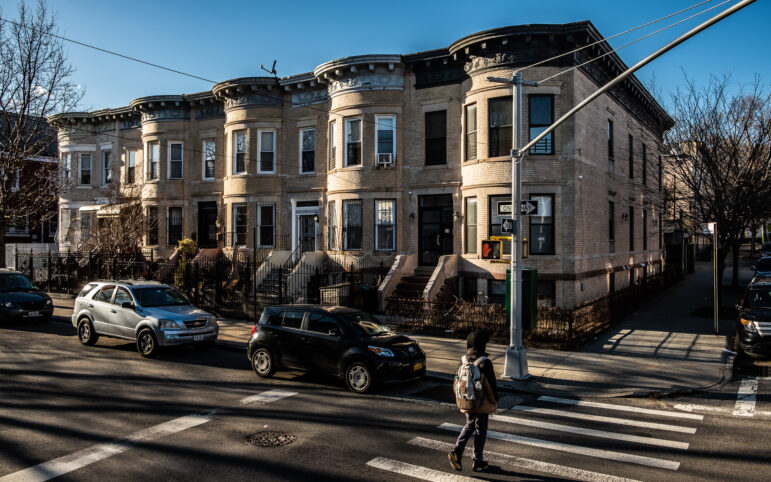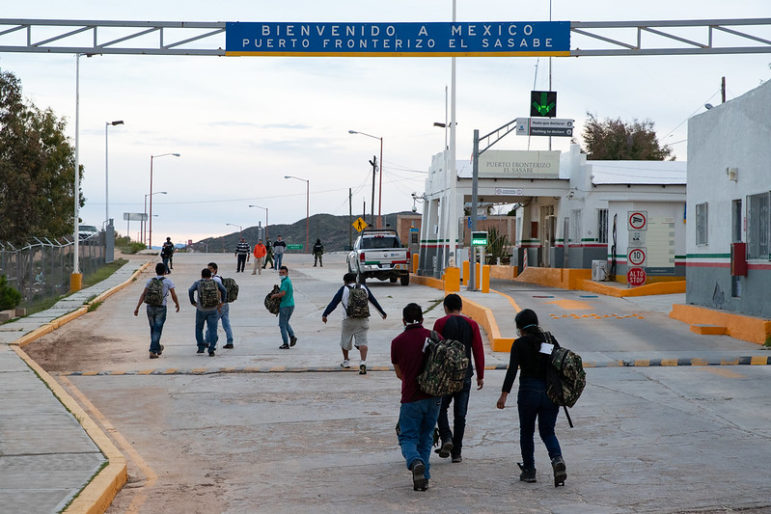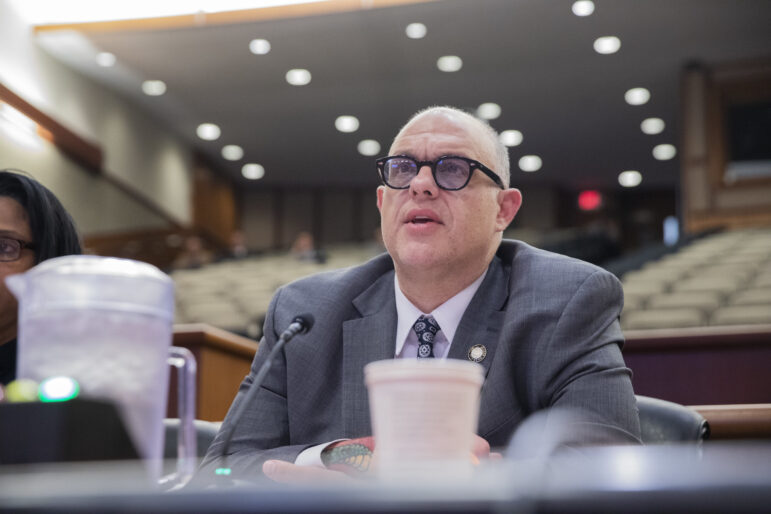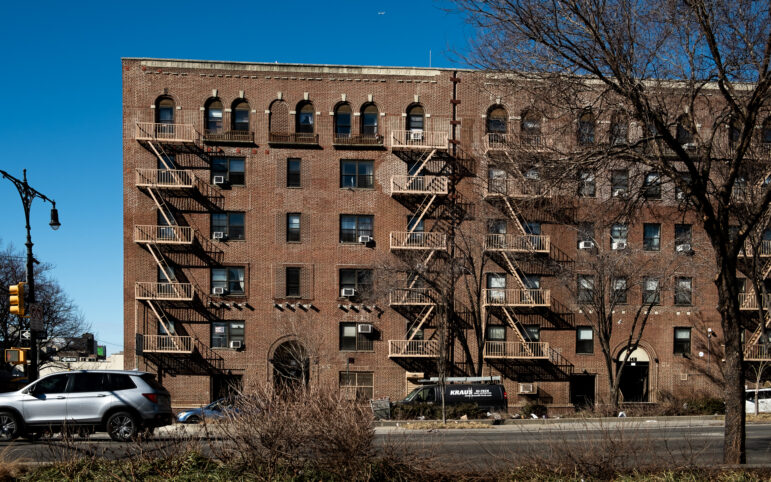Between the bright array of locally grown peppers and boxes of soy chips on the Park Slope Food Co-op’s shelves sits a few all-natural products that are pulling the community apart.
The heated editorials of the Co-op’s Linewaiters’ Gazette evidence the dissension that Dead Sea salts and Israeli-imported persimmons are creating among members.
While Israeli and Middle-Eastern politics have been debated in the Gazette for over a decade, the proposal to stop selling Israeli products in compliance with the Boycott, Divestment and Sanctions (BDS) movement is far more recent. The move, which could be put to referendum in the coming weeks, has sparked debate at co-op general meetings, dozens of letters to the Gazette‘s editor and blog postings touting the opinions of both sides (like stopbdsparkslope.blogspot.com/ and psfcbds.wordpress.com/).
Though the Co-op has implemented product bans in the past, (against Nestlé for their bad baby formula, Coca-Cola for their alleged role in the murder of union leaders in Columbia, and South Africa during apartheid), the proposal to join the BDS movement is the most controversial proposed boycott in the Co-op’s history.
In the most recent issue of the Gazette, one of the co-op’s anti-BDS groups, “More Hummus, Please,” contended that allowing a referendum to be held on the issue will change the co-op’s reputation of being opposed to discrimination of any form. The group has also asked the boycott’s backers to voluntarily renounce their BDS proposal, since “at every food coop where a BDS effort was introduced, anger, hostility and disharmony followed.” Co-ops in Seattle, Davis, Calif., Townsend, Wash., all repudiated proposed BDS calls after bruising battles. Only one co-op in the United States, in Olympia, Wash., is known to have signed on to the boycott.
However, BDS activists are fighting back, with members Naomi Brussel and Thomas Cox arguing that co-op members should not shy away from Israel/Palestine issues simply because they are polarizing. “Many people were active in the [PSFC’s] anti-South African apartheid movement, and those of us who fight against Israeli apartheid policies are following in that tradition,” the two stated in a joint letter to the editor.
Still, some members remain wary that aligning with the BDS movement would imply more than simple solidarity with a human rights cause.
“From reading their letters from the past two years, they don’t seem to have a terribly sophisticated understanding of the situation there, or of the group that they’re representing,” Barbara Mazor, a leader of the Park Slope’s anti-BDS movement, says of the boycott’s backers.
While the acronym of BDS simply refers to the act of boycotting, divesting and sanctioning various Israeli goods and institutions, the tactic has become its own unique movement with help from the Palestinian BDS National Committee (BNC). The BNC, which works to coordinate the international BDS campaign, has helped to give this movement a strong voice by creating alliances between BDS activists around the globe. According their website, the BNC promises “support and encouragement to the various BDS campaign efforts in all locations.”
The BNC claims that its call for a campaign of boycotts, divestments and sanctions came in 2005, instigated by Israel’s decision not to comply with a ruling of the International Court of Justice against Israel’s use of security barriers. The committee’s website states that “Israel’s regime over the Palestinian people is a regime which combines colonialism, apartheid and occupation.”
However, this version of BDS’s rise to fame is disputed by many anti-BDS activists, including Jon Haber in his blog, Divest This! and the group of academics and students behind the “BDS Cookbook” blog, who all claim that the movement began to take shape in 2001 at a forum for non-governmental organizations held parallel to the 2001 UN World Conference Against Racism in Durban, South Africa. It was at this forum that the “Apartheid Strategy” was born, which branded Israel as the “heir” of the South African apartheid. Though the forum’s anti-Israel rhetoric was criticized by the then United Nations High Commissioner for Human Rights, Mary Robinson, it did not discourage the Palestinian BDS National Committee from spreading the apartheid=Israel framework to the international community through the use of boycotts, divestments and sanctions.
While the Palestinian Campaign for the Academic and Cultural Boycott of Israel has cited BDS as “the only non-violent form of action available to people of conscience the world over,” Commentary writer Jonathan Tobin has stated that “the BDS campaign against Israel is a clear form of delegitimization; it is textbook anti-Semitism.”
Locally, Rabbi Andy Bachman of Congregation Beth Elohim in Park Slope recently called for scrutiny of some of the groups backing BDS, saying that their “rhetoric reveals that the ultimate goal of the majority of its supporters is dissolution of Israel as a Jewish state.”
One staunch supporter of the BDS movement is Badil, the Resource Center for Palestinian Residency and Refugee Rights, which, according to the NGO Monitor, will have donated $575,000 to the BDS movement by 2012. Badil participated in the 2010 10th Annual Meeting of the Global Palestine Right of Return Coalition, which rejected the U.S.-backed “roadmap for peace” and the Arab Peace Initiative on the grounds that they did “not meet the minimum rights of our people but only perpetuate the arrogance of the Zionists.”
Omar Barghouti, the co-founder of The Palestinian Campaign for the Academic and Cultural Boycott of Israel, has spoken around the world on behalf of the BDS movement. Bagrhouti rejects the two-state solution in favor of a single state called Palestine, arguing that would be a “more just, moral and therefore enduring alternative for peaceful coexistence,” and has stated that “Palestinian communities… have been recently subjected to some of the worst, ongoing Israeli campaigns of gradual ethnic cleansing intended to Judaize their space.”
Proponents of the BDS movement have also stated that an end to the occupation would not end BDS’ work. The Palestinian “right of return,” which calls for millions of Palestinians to move back into Israel, is, according to Barghouti, “non-negotiable.”
However, local BDS supporters defend the boycott as a non-violent method for punishing Israel for its alleged human rights breaches. In a letter to the Park Slope Food Co-op, Cox and Brussel have stated that “our intent is to … make the human rights of all people a priority decision in our purchasing acts.” They added: “The co-op is a community that is concerned with justice.”








